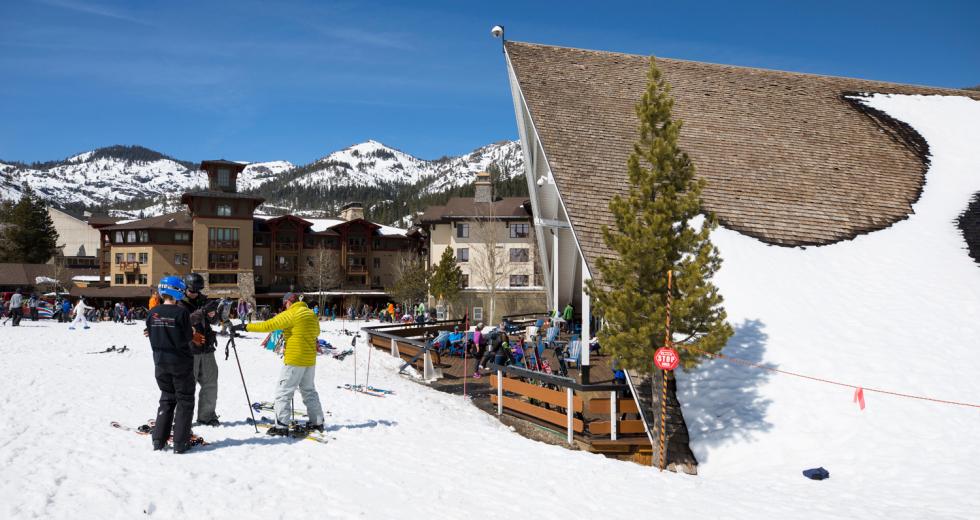A fleet of Teslas are headed to Squaw — and not just to the parking lot.
As part of its ongoing renewable energy efforts, the resort is partnering with Liberty Utilities and the electric car (and rocket) company on a proposal to install battery units for storing power generated by solar and other sources.
Related: Squaw Goes Green
Related: California Ski Industry Association president on environmental stewardship
The proposed partnership, dubbed the Olympic Valley Microgrid Project, will create an energy “microgrid” that allows the resort, and the surrounding community, to keep the lights on when power outages hit. Partners estimate units will be able to power the resort and 900 homes for four to six hours — at no extra cost to the mountain or other customers.
“When we lose power and we have to shut down the ski area for 4 to 5 hours, that’s devastating to our business,” explains Andy Wirth, the former Squaw Valley Ski Holdings president and top executive who spearheaded the project. “I think that over time we can virtually eliminate those outages. That’s worth hundreds of thousands of dollars to us as a customer of the utility.”
The project, which will need approval from the California Public Utilities Commission, is reflective of a bigger trend in the energy market. Jon Hart with the nonprofit Center for Sustainable Energy, says he saw a few dozen of these projects throughout the state in 2013 and 2014. He’s now seeing hundreds explored each month.
“The demand for energy storage has grown a lot faster than was anticipated just a few years ago,” he says. “The cost for energy storage is falling [and] it’s so much more versatile than solar or wind power [alone]. It can provide backup if the power goes out, it can help integrate renewables or shift energy to later times.”
The large lithium batteries, which look like sleek white refrigerators, will also allow the resort to tap into solar power even when the sun isn’t out. “The magic sauce is renewable energy coupled with storage,” Wirth says. “I think we’re at the front end of a pivotal time in the story of energy generation in this country.”



